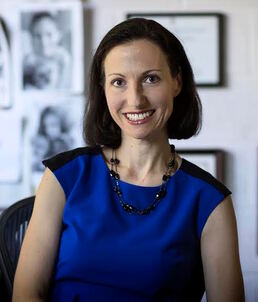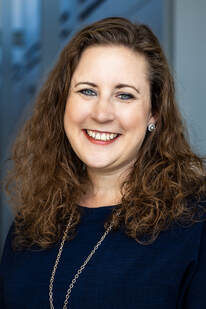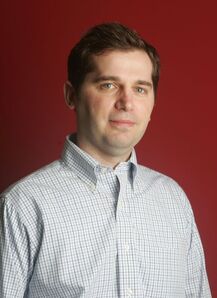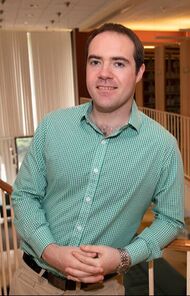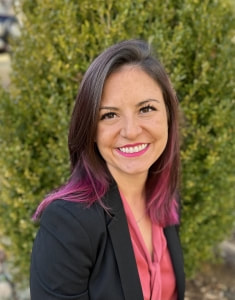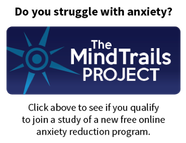Bethany TEACHMAN
|
Bethany Teachman is a Professor and the Director of Clinical Training at the University of Virginia in the Department of Psychology. She received her Ph.D. from Yale University, and her B.A. from the University of British Columbia. Her lab investigates biases in cognitive processing that contribute to the development and maintenance of psychopathology, especially anxiety disorders. She has had continuous funding from the National Institutes of Health and private foundations over the past decade. Dr. Teachman is winner of a 2012 American Psychological Association Distinguished Scientific Award for Early Career Contribution to Psychology, the 2014 Association for Behavioral and Cognitive Therapies Outstanding Mentor Award, an Association for Psychological Science Fellow, and a former Fellow at Stanford's Center for Advanced Study in the Behavioral Sciences. Dr. Teachman serves as Chair of the Coalition for the Advancement and Application of Psychological Science and is past president of the Society for a Science of Clinical Psychology.
|
JENNIFER hoWELL
|
Jennifer Howell is an associate professor of Health Psychology at the University of California, Merced. She received her Ph.D. in Social Psychology from the University of Florida in Gainesville, FL (2015) and her B.A. in Psychology from Southwestern University in Georgetown, Texas (2009). Her research focuses broadly on how people manage psychological threats and bad news, with a particular interest in health decision-making and behavior. Her primary line of research has investigated whether or not people want to know information about their health. She is the author of over 50 peer-reviewed articles and book chapters and has has been recognized by the Association for Psychological Science as a Rising Star and has received several awards for early career research including one from the Society of Behavioral Medicine Health Decision Making special interest group.
|
kRISTEN lINDGREN
|
Kristen Lindgren is a Professor in the University of Washington's (UW) Department of Psychiatry and Behavioral Sciences. She is Acting Director of UW's Trauma Recovery Innovations and a board-certified clinical psychologist. She received her Ph.D. in clinical psychology from the UW in 2006 and returned to UW as a faculty member in 2010. Her research interests focus on cognitive processes in psychopathology and health behaviors, especially in addictions and posttraumatic stress disorder, and on the adaptation and implementation of evidenced based mental health interventions. Support for her work has been provided by the National Institute on Alcohol Abuse and Alcoholism and the University of Washington's Alcohol and Drug Abuse Institute. Dr. Lindgren has also served as consultant for dissemination projects aimed at training community-based mental health workers in Cognitive Processing Therapy in Washington State, Texas, and Iraq.
|
Matthew nock
|
Matthew K. Nock, Ph.D. is a Professor of Psychology at Harvard University. He received his Ph.D. from Yale University and his B.A. from Boston University. Nock's research is aimed at advancing the understanding why people behave in ways that are harmful to themselves, with an emphasis on suicide and other forms of self-harm. His work is funded by grants from the National Institutes of Health and several private foundations, has been published in over 100 scientific papers and book chapters, and has been recognized through the receipt of early career awards from the American Psychological Association, the Association for Behavioral and Cognitive Therapies, and the American Association of Suicidology. At Harvard, Nock teaches courses on statistics, research methods, self-destructive behaviors, developmental psychopathology, and cultural diversity - for which he has received several teaching awards including the Roslyn Abramson Teaching Award and the Petra Shattuck Prize.
|
bRIAN o'sHEA
Alexandra Werntz
|
Alexandra Werntz received her Ph.D. in clinical psychology at the University of Virginia. She completed her postdoctoral fellowship at the University of Massachusetts Boston and the University of Virginia and was funded in-part by AIM Youth Mental Health. Her recent research has focused on understanding how mentors can provide supportive accountability to mentees engaging in digital mental health interventions. Dr. Werntz is also a licensed clinical psychologist practicing in Virginia, specializing in anxiety, depression, end-of-life issues, and trauma.
|

